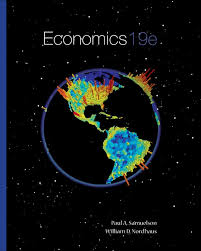Outcome-Based Education (OBE) and the World Economic Forum's (WEF) Education Initiatives: A Strategic Framework for India and Canada
Introduction
Outcome-Based Education (OBE) and the World Economic Forum's (WEF) Education 4.0 framework are transforming global educational landscapes, presenting an opportunity for countries like India and Canada to enhance workforce productivity and transition from resource-based to knowledge-based economies. This paper examines the intersection of these educational paradigms with economic models and provides actionable strategies to align education with economic and societal goals.
Outcome-Based Education: A Paradigm Shift
OBE focuses on clearly defined outcomes that students should achieve by the end of their educational experience. This approach ensures that education is aligned with industry and societal needs. Key elements of OBE include:
- Competency-Based Curriculum Design:
- Curricula are tailored to specific skills and knowledge outcomes.
- Emphasis on practical applications to ensure industry readiness.
- Demonstrable Skills and Knowledge:
- Focus on measurable achievements, such as problem-solving and technical proficiency.
- Encourages innovation and adaptability.
- Continuous Assessment and Improvement:
- Regular feedback loops to refine teaching methodologies.
- Data-driven insights to track student progress and institutional effectiveness.
World Economic Forum's Education 4.0 Framework
The WEF’s Education 4.0 framework is designed to prepare learners for the demands of the Fourth Industrial Revolution. Key principles include:
- Skills for the Future:
- Cognitive skills: Critical thinking, problem-solving, and creativity.
- Interpersonal skills: Teamwork, leadership, and emotional intelligence.
- Physical and technical skills: Advanced digital literacy and technology integration.
- Bridging Education and Industry:
- Collaboration between academic institutions and businesses to ensure curriculum relevance.
- Focus on work-integrated learning opportunities.
- Emphasis on Values and Attitudes:
- Promoting lifelong learning and adaptability.
- Encouraging ethical practices and social responsibility.
Use Cases and Applications
India: Transforming a Resource-Based Economy
India has historically relied on agriculture and natural resources. By implementing OBE and leveraging WEF’s frameworks, India can enhance productivity and prepare its workforce for emerging industries.
- Engineering Education:
- The National Board of Accreditation mandates OBE in engineering, pharmacy, and management programs.
- Institutions are focusing on building competencies in fields like renewable energy, robotics, and artificial intelligence.
- Digital Skill Development:
- Programs aligned with WEF’s focus on digital literacy and emerging technologies.
- Initiatives like Digital India aim to equip millions with foundational and advanced digital skills.
- Rural Education Reform:
- Implementation of mobile learning platforms to reach underserved communities.
- Customized curricula to address regional economic needs, such as agro-technology and rural entrepreneurship.
Canada: Enhancing Workforce Competitiveness
Canada is transitioning from a primarily resource-based economy to a knowledge-based one. Strategies to align education with this goal include:
- Work-Integrated Learning:
- Government initiatives aim to create 10,000 work placements annually by integrating academic curricula with real-world experience.
- Partnerships with industries like renewable energy and healthcare to create targeted programs.
- STEM Education Focus:
- Increasing representation in science, technology, engineering, and mathematics (STEM) fields.
- By 2025, Canada aims to have 40% of its jobs in science and technology sectors.
- Immigrant Skill Integration:
- Programs to recognize and integrate foreign credentials.
- Focus on upskilling immigrants to meet local labor market demands.
Economic Models: Lessons from USA, Japan, and Germany
USA: Market-Oriented Capitalism
- Minimal government intervention with an emphasis on consumption and innovation.
- Strong focus on entrepreneurship and venture capital funding.
- Lessons for India and Canada:
- Encourage startup ecosystems and funding opportunities.
- Reduce bureaucratic barriers to business innovation.
Japan: Developmental Capitalism
- Strategic government role in fostering innovation and industrial growth.
- Collaboration between the government, academia, and private sector.
- Lessons:
- Develop national policies to support emerging industries.
- Promote research and development through public-private partnerships.
Germany: Social Market Capitalism
- Balanced approach to market freedom and social welfare.
- Emphasis on vocational training and apprenticeships.
- Lessons:
- Implement dual education systems that combine classroom learning with practical experience.
- Encourage export-oriented strategies to integrate into global markets.
Recommendations for India and Canada
- Adaptive Curriculum:
- Tailor educational programs to address specific industry requirements.
- Regularly update curricula to reflect technological advancements.
- Industry-Academia Partnerships:
- Foster collaboration to design job-ready programs.
- Encourage internships, apprenticeships, and co-op programs.
- Digital Literacy and Inclusion:
- Expand access to digital tools and resources in underserved areas.
- Promote digital upskilling for all age groups.
- Lifelong Learning Platforms:
- Create accessible online platforms for continuous education.
- Integrate micro-credentialing to recognize skill upgrades.
- Export-Oriented Strategies:
- Develop policies to support global competitiveness.
- Focus on niche markets, such as green technologies and advanced manufacturing.
Conclusion
By adopting Outcome-Based Education principles and aligning with the World Economic Forum’s Education 4.0 framework, India and Canada can position themselves as leaders in the global knowledge economy. Drawing from the economic models of the USA, Japan, and Germany, these nations can implement strategies to boost workforce productivity, foster innovation, and ensure sustainable growth. Through adaptive curricula, industry collaboration, and a focus on lifelong learning, India and Canada can transition from resource-dependent to knowledge-driven economies, securing a competitive edge in the 21st century.
Citations
[1] https://www.nbkrist.co.in/OBE/OBE_Book.pdf
[2] https://www.linkedin.com/pulse/speaking-same-language-skills-summary-world-economic-forums
[3] https://politikaakademisi.org/2023/08/02/three-different-system-of-national-economy-models-american-market-oriented-capitalism-japanese-developmental-capitalism-and-german-social-market-capitalism-according-to-robert-gilpin/
[4] https://www.robert-schuman.eu/en/european-issues/237-the-german-economic-model-a-strategy-for-europe
[5] https://ised-isde.canada.ca/site/innovation-better-canada/en/jobs-and-innovation-tracking-progress-and-results/indicators-and-targets-diverse-and-highly-skilled-workforce
[6] https://www.weforum.org/stories/2025/01/future-of-education-and-skills/
[7] https://www.e-jei.org/upload/JEI_36_3_339_371_2013600250.pdf
[8] https://www.govinfo.gov/content/pkg/GOVPUB-FR-PURL-gpo29001/pdf/GOVPUB-FR-PURL-gpo29001.pdf
[9] https://ca.indeed.com/q-canada-india-teaching-jobs.html
[10] https://www.weforum.org/publications/defining-education-4-0-a-taxonomy-for-the-future-of-learning/
[11] https://intapi.sciendo.com/pdf/10.2478/sbe-2019-0011
[12] https://www.csis.org/analysis/comparing-us-japanese-and-german-fiscal-responses-covid-19



